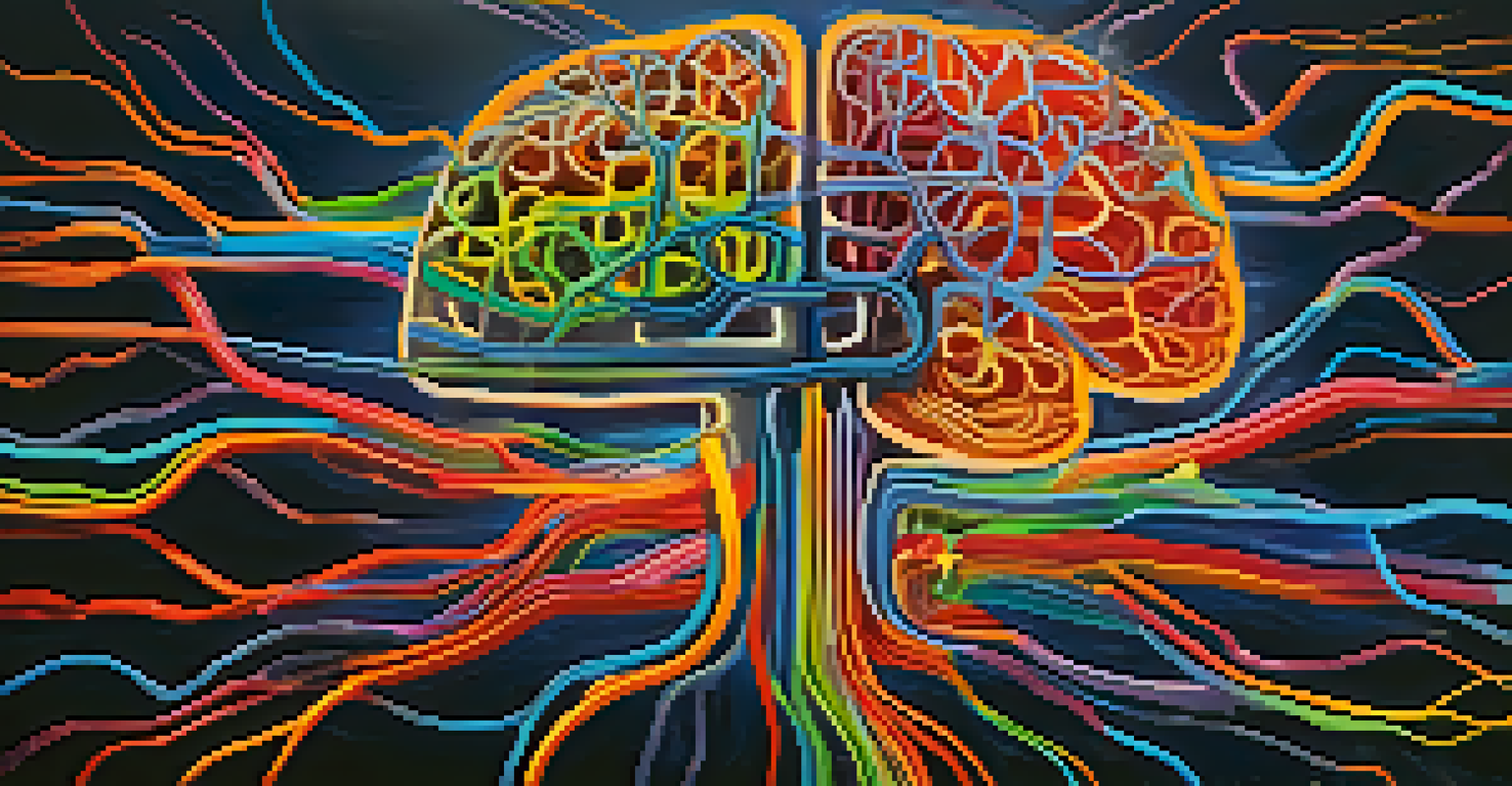Hallucinogens and Placebo: A Dual Approach to Healing

Understanding Hallucinogens: Nature's Mind-Expanding Tools
Hallucinogens are substances that alter perception, mood, and cognitive processes. They can create profound experiences that may lead to insights about oneself and the world. Common examples include psilocybin, found in certain mushrooms, and LSD, which has been used in therapeutic settings.
The mind is everything. What you think you become.
These substances have been studied for their potential to treat various mental health conditions, including depression and PTSD. By engaging the mind in a different way, they can unlock pathways to healing that traditional therapies might miss. This exploration into consciousness offers a glimpse into the untapped potential of the human psyche.
While some may view hallucinogens with skepticism, recent studies suggest a growing acceptance in the medical community. This shift is partly due to the promising results from clinical trials that indicate hallucinogens can significantly improve mental health outcomes.
The Placebo Effect: Healing Through Belief
The placebo effect is a fascinating phenomenon where patients experience real improvements in their condition, simply because they believe they're receiving treatment. This effect highlights the power of the mind in the healing process, demonstrating that sometimes our beliefs can influence our physical well-being. It's a reminder that our mental state can have a profound impact on our health.

In clinical settings, placebo groups often show surprising results, leading researchers to explore how expectation and belief can lead to real changes in symptoms. This is especially relevant in conditions like pain management and anxiety, where a positive mindset can be incredibly powerful. The placebo effect encourages a holistic view of health, where both mind and body are interconnected.
Hallucinogens Aid Mental Health
Research suggests that hallucinogens like psilocybin and LSD can significantly improve mental health conditions by unlocking new pathways for healing.
Understanding the placebo effect opens up discussions about the importance of mental health in treatment plans. It challenges the traditional medical approach that focuses solely on physical ailments, urging a more integrated perspective that values psychological factors.
Combining Hallucinogens and Placebo for Healing
The intersection of hallucinogens and the placebo effect presents a unique opportunity for healing. Imagine a scenario where a patient takes a hallucinogenic substance, believing wholeheartedly in its transformative power. This belief, combined with the substance's effects, can create a potent healing experience, often leading to profound personal insights.
Your body is the church where Nature asks to be worshipped.
Studies have shown that the therapeutic context, including the patient's expectations, can significantly enhance the efficacy of hallucinogens. When patients are guided in a supportive environment, their experiences can lead to lasting changes in attitudes and behaviors. This dual approach amplifies the healing potential, merging the physical and psychological aspects of recovery.
This combination invites us to rethink how we approach treatment, emphasizing the importance of both mental and emotional support in any healing process. By recognizing the value of belief and the mind's role, we can create more effective therapeutic strategies.
The Science Behind Hallucinogens and Healing
Research into hallucinogens has grown exponentially, revealing their potential impact on brain chemistry and neural pathways. These substances can encourage neuroplasticity—the brain's ability to reorganize itself—potentially leading to new ways of thinking and coping with challenges. This scientific backing adds to the credibility of hallucinogens as a viable treatment option.
For instance, studies have shown that psilocybin may help alleviate symptoms of depression and anxiety by fostering a sense of connectedness and empathy. This shift in perspective can be life-changing for individuals struggling with mental health issues. The science supports a broader understanding of how these substances can facilitate healing.
Placebo Effect Enhances Healing
The placebo effect demonstrates how belief and expectation can lead to real improvements in health, emphasizing the mind's role in the healing process.
As researchers continue to investigate the mechanisms at play, the hope is to unlock even more therapeutic applications. This ongoing exploration highlights the potential for innovative treatments that prioritize mental well-being, paving the way for a new era in mental health care.
Ethical Considerations in Using Hallucinogens
While the potential for hallucinogens in therapy is exciting, it also raises ethical questions. One major concern is the risk of misuse, particularly in unsupervised settings where individuals may not have the necessary support. Ensuring safe and responsible use is paramount, especially given the powerful effects these substances can have on the mind.
Another ethical consideration is informed consent. Patients must be fully aware of what they are engaging with, including potential risks and benefits. Education plays a crucial role here, as a well-informed patient is better equipped to navigate their healing journey.
Lastly, there's the challenge of accessibility. As research progresses, it's essential to ensure that these treatments are accessible to those who would benefit from them most, regardless of socioeconomic status. Balancing innovation with ethical responsibility is vital for the future of hallucinogen-based therapies.
The Role of Set and Setting in Healing Experiences
The concept of 'set and setting' refers to the mindset of the individual and the physical environment in which a hallucinogen is consumed. Both elements are crucial in shaping the overall experience and can greatly influence the therapeutic outcomes. A supportive environment can enhance feelings of safety and promote positive experiences.
For instance, patients undergoing treatment in calming, well-designed spaces are more likely to report beneficial effects. This highlights the importance of creating a nurturing atmosphere, whether in a clinical setting or at home. The right environment can help individuals feel more at ease, allowing them to delve deeper into their experiences.
Set and Setting Matter
The mindset of the individual and the environment where hallucinogens are consumed play crucial roles in shaping therapeutic outcomes.
Moreover, the mindset of the individual is equally significant. A positive, open attitude can amplify the healing effects of hallucinogens, while anxiety or fear may lead to challenging experiences. This interplay between mind and environment underscores the importance of preparation and support in therapeutic contexts.
Future Directions: Integrating Healing Approaches
As we continue to explore the potential of hallucinogens and the placebo effect, there's a growing interest in integrating these methods into conventional treatment plans. This could mean combining traditional therapies with guided hallucinogenic experiences, creating a more holistic approach to mental health care. Such integration could lead to more personalized and effective treatments.
The future may also see increased collaboration among researchers, clinicians, and policymakers to establish guidelines for safe and ethical use. This collaborative effort can help pave the way for broader acceptance and understanding of these therapies. The goal is to create an environment where patients feel empowered to explore their healing options.

Ultimately, the journey towards integrating hallucinogens and placebo effects into healing is just beginning. With ongoing research and open dialogue, we have the opportunity to reshape how we approach mental health and wellness, blending ancient wisdom with modern science.